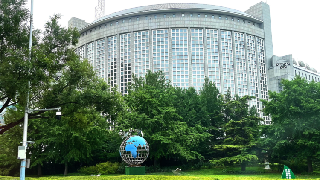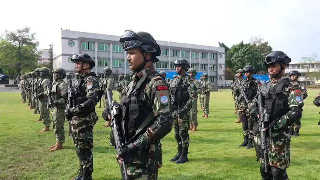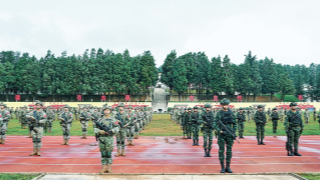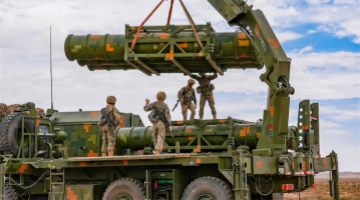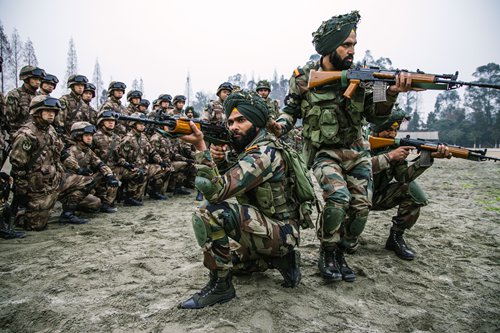
Soldiers do military training at the "Hand-in-Hand" 2018 China-India counter-terrorism exercise. Photo: Li Hao/GT
China and India launched a joint counter-terrorism exercise on Saturday not far from the Chinese-Indian border, a move which Chinese experts said will boost the strategic mutual trust of the two countries' militaries.
The 2019 Hand-in-Hand exercise started Saturday at the Umroi Cantonment, about 25 kilometer from Shillong, capital city of Meghalaya in northeast India, with each side sending 130 soldiers, China Youth Daily reported on Saturday.
China's troops are from the People's Liberation Army Tibet military command and arrived in India on Friday via both land and air transportation, the report said.
The 16-day drills, which consist of three phases of adaptation training, mixed training and comprehensive exercises, will mix Chinese and Indian troops into two groups as soldiers and officers from the two countries live and train together, understanding each other's skills, tactics, training methods and command procedures.
This year's exercise is the eighth joint counter-terrorism exercise between China and India since 2007, China Youth Daily said.
The Hand-in-Hand exercise was suspended in 2017 due to the Doklam standoff and resumed in 2018.
Joint counter-terrorism tactical drills and the setup of a counter-terrorism command post will be included in the exercise in order to increase the troops' ability to combat terrorism together, according to Colonel K.J. Singh, commander of the participating Indian troops, China Central Television (CCTV) reported on Sunday
"The joint exercise will further deepen military communication and cooperation between the two sides, boosting mutual understanding and friendly relations, and contribute to the regional peace and development," said Hu Chunguang, commander of the participating Chinese troops, on CCTV.
The exercise came after the second informal meeting between the two countries' top leaders in the southern Indian city of Chennai in October, making it a practical action pushing for military mutual trust, which is an important consensus reached by the two countries' leaders in the meeting, Qian Feng, a research fellow at the national strategy institute of Tsinghua University in Beijing, told the Global Times on Sunday.
Qian pointed out that the location of the drills is not far from the border, an indication that the Indian side no longer sees the issue as warily as before.
Citing official sources, Indian media reported that the next round of border talks between Chinese State Councilor and Foreign Minister Wang Yi and Indian National Security Advisor Ajit Doval could take place tentatively on December 21.
The dialogue is meant to intensify efforts to achieve a "fair, reasonable and mutually acceptable solution" to the question at an early date, helping maintain peace in border areas and preventing any military flare-up which could jeopardize the overall development of bilateral ties, the Times of India reported on Sunday.
?


